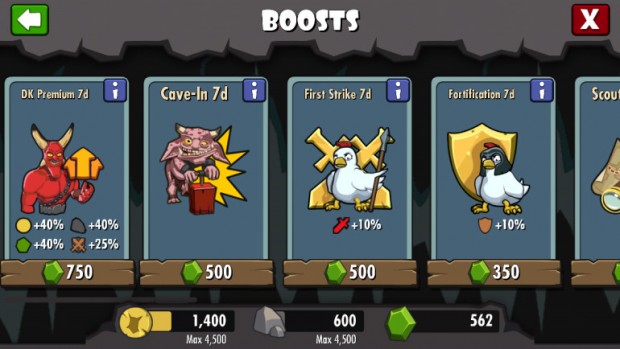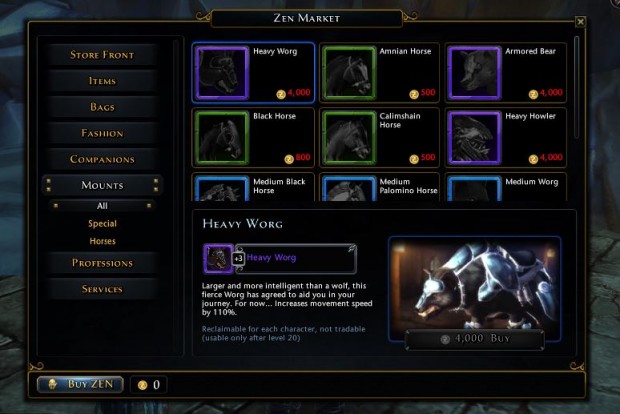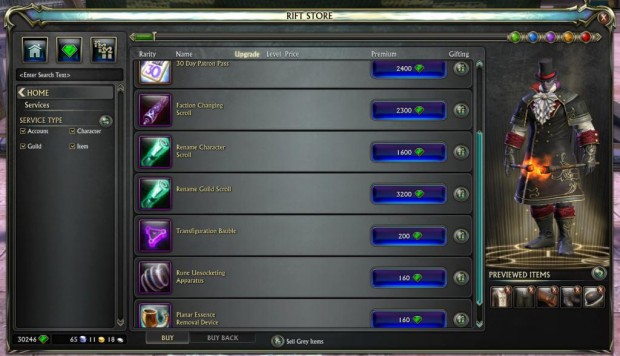Awful Idea: Monthly Spending Limit For F2P Games
I'd chalk this up less under “awful idea for a game” and more under “awful idea for a game developer,” because it will affect the bottom line. I think it's totally reasonable for players but unlikely to ever be adapted by any free-to-play game... maybe.
Mojang's card-battling game Scrolls will be putting a limit on in-game purchases. Scrolls isn't free-to-play – not yet, anyway – but the notion of limiting cash shop purchases is intriguing. Mojang says they're doing it so people with big wallets don't “break its balance,” and that's a commendable reason, but I also think it makes sense from a purely humanitarian perspective – and it could be a pre-emptive step against government intervention.
We've seen plenty of pieces in the last couple years about people spending way too much on free-to-play games, whether it's from a player making purchases on purpose or someone having access to someone else's account and accidentally overspending. This could easily be avoided, or at least mitigated, with some kind of spending limit, probably a monthly cap on how much currency can be purchased or how much real money can be spent in game.
The exact spending ceiling would vary per game – and I'll admit to being pretty frugal – but I'd imagine you don't need to spend more than $50 to $100 or so per month on any F2P game, in most cases. That would get you plenty of hats, boosts, extra character slots, whatever. Maybe $200 to $250 would be more reasonable for games that have a lot to unlock on a regular basis. Again, it's more than I, and probably most of you, would ever spend, but it would probably be enough to unlock literally every non-random element (i.e., not taking lockbox keys into account) a frequently updated game has to offer.
Even with that bigger number, you'd be looking at a maximum spend of $3,000 per year – a decent chunk of cash, but not enough to cause most adults severe financial distress. And you'd avoid the problem of those crazy “binges,” where someone spends thousands over a few days, whether intentionally or not.
Note that I'm suggesting these limits be voluntarily implemented by the developer of the game, and not by any outside agency. I don't think we're quite at that level yet, but when you look at some of the things going on in other parts of the world, I wouldn't call it a complete impossibility. The ESRB exists because Congress put pressure on game developers to label the age-appropriateness of their games. They did so voluntarily rather than accept governmental control of the ratings. The same could happen someday with regards to free-to-play spending.
Of course, as we know, many F2P games rely on “whales” to stay in business. A very small percentage of players pay anything, and a very small percentage of that very small percentage pay a lot, and that helps keep those games afloat. Whether that's healthy in the long run is still up for debate – after all, if you lose just one big-spending player, it can have an effect on your bottom line – but it's a cash cow developers aren't likely to give up soon. It's probably a bigger deal in mobile games than it is in PC and console gaming, but there is at least one person out there who spent enough in Team Fortress 2 that he “couldn't afford to pay the medical bills because his savings account had been stripped for TF2 money.”
So, would a F2P game, one with potentially unlimited consumer spending potential, adopt a limit? And would the goodwill and positive press from it outweigh the benefits of whales' spending habits?
For that matter, would such a game even appeal to gamers who, while they realize they might not ever want to spend $250/month, might still chafe at the restriction? Maybe painting it more as a benevolent “competitive balance” issue rather than a patronizing “we don't think you know how to spend your money” issue, like Mojang is doing with Scrolls, would work better. Just think about it the next time you hear about someone blowing thousands in a F2P game's cash shop.
About the Author

Jason Winter is a veteran gaming journalist, he brings a wide range of experience to MMOBomb, including two years with Beckett Media where he served as the editor of the leading gaming magazine Massive Online Gamer. He has also written professionally for several gaming websites.
More Stories by Jason WinterRead Next

About a month ago we started a 3 part interview with Wayne Song, Swordsman's Associate Product Manager, to catch up on the Gilded Wasteland expansion to the MMORPG.
You May Enjoy

Work your way through 100 milestones to earn new rewards.

It also highlights the game's various mechanics and other features.

It could be a nice break from all those more serious games we know you’re playing.

Participation will also earn players rewards built around the renewed Rune Mage class.



The Seller because the worth of the items are not falling like hell because of cash shop items flooding the market.
The buyer, because the seller need to be hounest for selling it, so he dont waste the limt hes have
And the publisher, because everyone can still buy stuff, so the game can still running.
what will it mean for that company? probably less money. when a small percentage pays for the entire game, im not sure whyd they do it, but more power to them.
personally id like to see a country put those limitation on f2p, itll kill that payment model toot sweet or flood it with ads. in other words itll wake people up most likely.
On the other hand devs that only got cash in their heads won't ever implement it (after all those types of devs only make cash-milkers disguised as games) until it bite them in the ass in the form of say... "oopsie-doopsie, my kid got my credit card and now i got 40k$ bill... can i get that back or we have to discuss this thru legal means?".